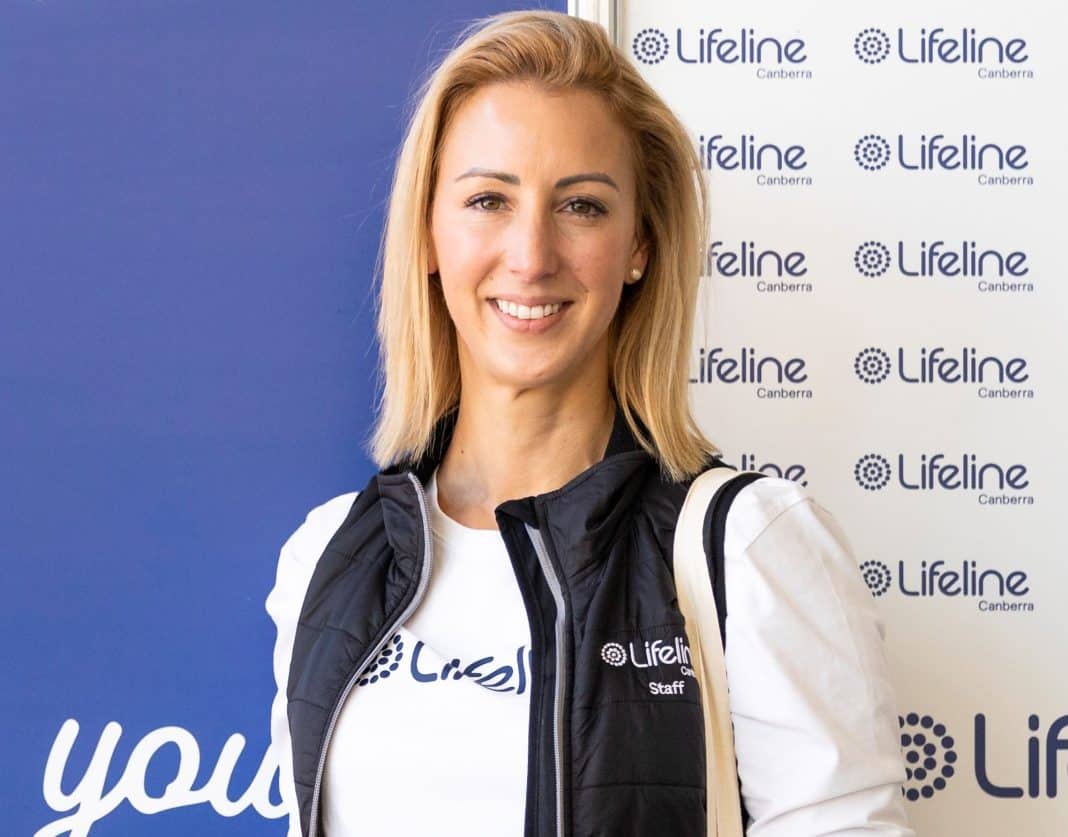More Australians are reaching out to Lifeline for help now than during last year’s lockdown: 3,000 calls a day (up from 2,500 before the pandemic) – and there has been a dramatic increase in the number of Canberrans seeking support.
That, Lifeline Canberra’s CEO, Carrie-Ann Leeson, says, is because the conversation around mental health has changed, and people are more willing to discuss their mental health.
“Everyone felt [mental health and anxiety] going through COVID. One of the biggest barriers to seeking help and care is stigma. There’s a reduction in stigma, and that’s left more people feeling comfortable to reach out,” she says.
But as they process the turmoil of the last couple of years, she believes many will need more time and self-care to heal.
“In general, people are feeling the after-effects or a hangover of COVID now more than ever, because life has not returned to normal for so many,” Ms Leeson says.
“There’s a sense of still feeling lost and hopeless that didn’t go away when the restrictions went away.”
- Naked swim aims to raise thousands for Lifeline (17 May)
- Bringing suicide Out of the Shadows (10 September 2021)
- Lifeline continues to help Canberrans during lockdown (19 August 2021)
Some people have lost loved ones; others have lost financial income and jobs, or freedoms; many have lost time, travel, and engagement.
“Everyone’s coming to terms with some degree of loss.”
Canberra has changed, too: some businesses have closed; people have left the city.
“We’re looking at a very different city – but it is also a city that has progressed. We must look at the positive.
“We’ve come through COVID, and a lot of people are realising that it wasn’t Utopia beforehand. The lives they had before COVID-19 weren’t necessarily the lives they wanted. Maybe some of the change has been in people’s approach to how they live their lives.”
Besides, Ms Leeson emphasises, COVID is not the entire reason for people’s current mental state.
“Life is complex, and COVID was one element. It might have triggered a number of things: relationship breakdown, job loss, domestic violence – but those things have happened for ages.”
What is new, though, is the public attitude to mental health. Ms Leeson has noticed far more acceptance – from people on the street, families getting together, in the workplace, and in social groups – around talking about how you feel, how you’re coping, and asking how people are.
“Whenever there is change, or whenever there is loss, people will often sit or reflect or assess.”
She encourages the public to take time to assess their own and their families’ health, and to do what work needs to be done.
“There are many things you can do to recover from emotional injury,” she says.
Self-compassion: “Recognising that you are valuable, and you are worthy of investment, time, and effort.”
Self-awareness: “Am I OK? Am I functioning to the degree I want to function? Am I happy? How do I feel? How am I eating, sleeping? How am I engaging with people? Am I still isolating myself? Am I angry?”
A plethora of services and supports is in place: GPs, the health network, psychologists, organisations like Lifeline, sporting groups, arts and hobbies, families and friends, connecting, and travel.
Lifeline provides mental health courses on self-compassion and reflection, dealing with people in difficult situations, and suicide or mental health first aid. Throughout the pandemic, it offered self-compassion courses for free; these sold out eight courses in advance.
Lifeline’s crisis support telephone service (13 11 14) operates 24/7. To manage the demand, Lifeline is recruiting, training, and onboarding crisis supporters.
“Our focus is on answering every single call,” Ms Leeson says.
Lifeline also runs bereavement and suicide support groups.
In addition, the charity runs events to bring the community together: this month, for instance, the Women of Spirit Luncheon honoured inspirational Canberra women, and the Bride Stride, when Canberrans will race down Thoroughbred Park in wedding gowns.
- Lifeline Canberra’s women of spirit overcome adversity to lift others (17 August)
- Race in a wedding dress for Lifeline Canberra Bride Stride (4 August)
“If you are still feeling unhappy or uncomfortable, limit social media, limit media. Focus on your basics: your diet, your sleep, your exercise. Reach out for help.”
Call Lifeline’s 24/7 Crisis Support on 13 11 14
Call 000 in an emergency
Get local, national and world news, plus sport, entertainment, lifestyle, competitions and more delivered straight to your inbox with the Canberra Daily Daily Newsletter. Sign up here.



